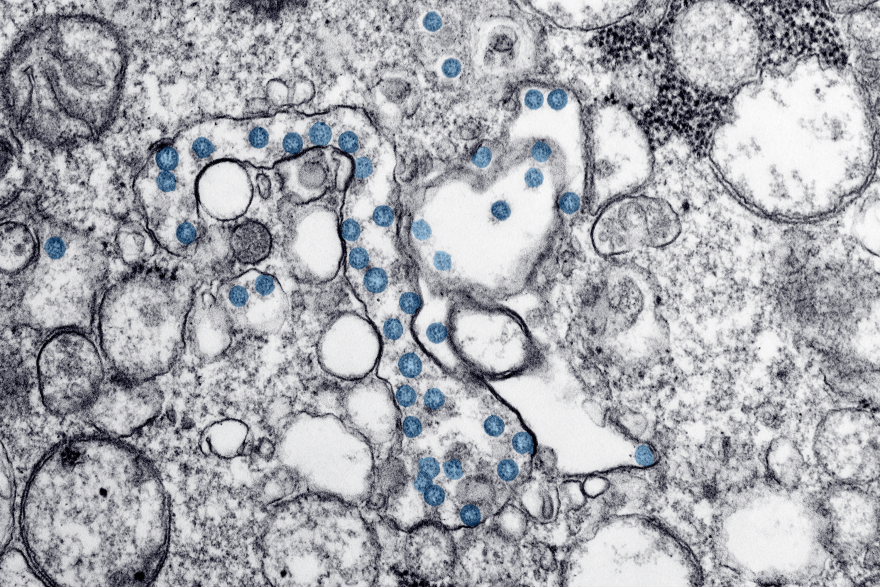Florida’s large population of senior citizens and people without health insurance make the state vulnerable to the threat posed by an outbreak of COVID-19. The number of cases in the state remain relatively small, but it has been growing as testing for the virus has grown.
People over 60 are at the highest risk of severe cases of COVID-19, especially those with other health problems like high blood pressure, diabetes and heart disease, according to a World Health Organization study of the virus. It also finds the virus is more deadly for older people, especially those older than 80.
One out of five Floridians is 65 years old or older. There are more than 35-hundred licensed nursing homes and assisted living facilities in Florida. Together, they can host almost 200,000 patients, according to the industry’s trade group, the Florida Health Care Association. The epicenter of the outbreak in Washington state is a nursing home just outside of Seattle.
All this puts a focus on the nursing home industry in Florida, and how it is preparing for and responding to the virus.
"We view your facilities as really very important," Governor Ron DeSantis told the state's nursing home operators on a conference call last week.
Test Kits
Despite the threat the virus poses for nursing home residents and staff, the facilities don’t have testing kits. Florida Health Department's Community Preparedness Manager Dayle Mooney told operators on a Friday conference call that, "There is not a current plan for collection kits distributed into nursing homes for specimen collection."
Plaza Health Network CEO Elaine Bloom wants the facilities her nonprofit owns to have some testing kits. "My hope is that they will provide some testing kits in each skilled nursing facility so that our doctors or nurse practitioners can provide and utilize them rather than to have a situation where we have to wait for somebody to come from the Department of Health."
Labor Supply and Demand
While the focus is on preparations and response for the nursing home industry, the virus threatens to expose another vulnerability of the business -- not enough trained nurses and nursing assistants.
"One of the biggest challenges that we're having already, and before the coronavirus, was a workforce shortage," said Kristen Knapp, director of communications for the Florida Health Care Association. "Our certified nursing assistants are frontline staff. They're looking for competitive wages. We're losing workers to Target, Amazon, and Chick-Fil-A because they're able to pay a more competitive wage."
In Florida, the average annual pay is about $27,000 dollars, according to federal government data. There were almost 90,000 nursing assistants working in Florida in 2018. Not all of them had jobs with nursing homes, but nationally, over half of nursing assistants work in skilled nursing facilities or assisted living facilities.
"We're sort of hitting a silver tsunami," Knapp said. "We really need to address this and get a handle on it."
Florida is part of a 32-state agreement allowing nurses from other states to come here and be certified to work. That is helpful during the build-up to and the aftermath of hurricanes. But with some of those other states experiencing COVID-19, how it could work in this public health emergency is untested. "Trying to limit and prevent any type of spread is obviously the first priority so that we can make sure we can keep our health care workers healthy," said Knapp.
New Protocols
Last week, the Centers for Medicare and Medicaid Services, the agency that pays many of the patient bills at nursing home facilities, released guidelines for how homes should screen visitors and workers. The federal government recommended that nursing homes and assisted living facilities screen visitors, staff and vendors for the disease by asking them questions about any recent international travel to countries with outbreaks, if they have come into contact with anyone who has or is being monitored for having the virus, or show signs of having a fever.
Visitors, employees and vendors for Plaza Health Network are being asked to have their temperature checked. Anyone with a temp over 100 degrees will be asked to stay out of the facilities. This includes Plaza's more than 1,000 employees. Visitors also will be asked the travel related questions recommended by the CDC. Bloom says they are preparing to screen everyone until further notice.
The CMS also announced nursing home and assisted living facility inspectors would be focusing exclusively on infection control and safety threats.
"I'm very concerned about it," said geriatric care expert Rona Bartelstone. "Unless it's backed up with additional funds, I don't know how states like Florida are going to be able to do that."
Family Impact
Bartelstone has worked with patients, families and elderly care service providers since 1973, including for her own families members. She is the CEO of OurAging, a Broward County-based company that works with health care service providers for the elderly. While she understands the need for the screening prototols, she worries about the affect on patients who may not be able to have visits from family members.
"It could be very detrimental, particularly if the person has some cognitive changes or is so emotionally dependent on visits from a spouse or a child or another family member for their emotional and physical well-being," she said. "If the person is able to understand the rationale and can talk to or use Facetime or have some other way of visually seeing each other, that would be a good coping mechanism."
WLRN depends on donors to remain South Florida's leading nonprofit, most trusted source of news and information. Support our mission by giving monthly as a sustaining member of Friends of WLRN or make a one-time donation of your choice. Thank you. Click here to give.



